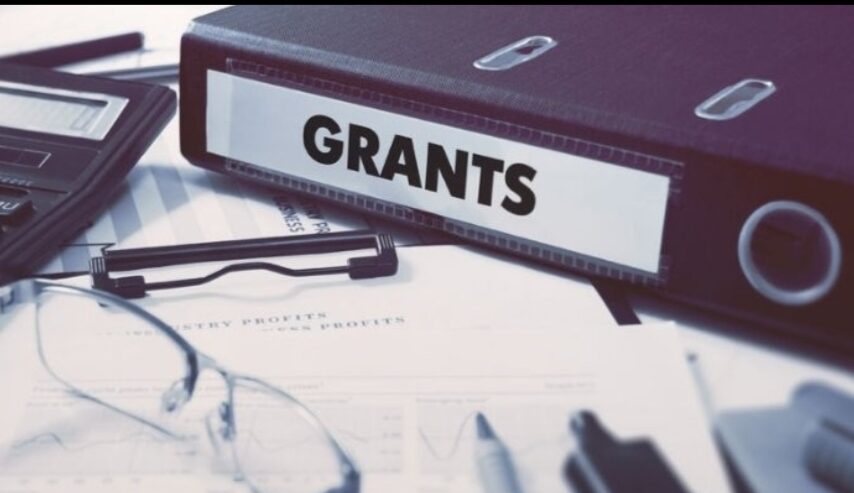Finance is the lifeline of any project, and securing grants is the best way to get financial funding to infuse life into your innovative ideas. Effective grant management plays a pivotal role in ensuring the success of the projects that are funded through government grants. However, many people secure grants, but cannot manage them properly, which ultimately leads to the failure of the project and the wastage of funds. It’s crucial to understand how to manage secured grants in order to use them efficiently, effectively, and in adherence to compliance requirements. It involves a comprehensive and systematic approach that ensures that the funds are utilized for the right activities in the correct manner, where compliance standards are upheld, and daily reporting is done to ensure that the company is moving in the right direction. Companies or businessmen have to track their fund usage throughout their lifecycle and make proper reports to present to the funding agency. In this guide, we will discuss the best practices for managing secured grants to bring impactful projects to life and ensure their success.
Understanding Grant Requirements

Identify Needs and Organizational Roles
Before securing grants, determining what exactly the grant will help you achieve is important. For that, identify the project needs, its scope, required resources, etc., and based on that, create a proper team and allot the organizational role to them clearly. Determine who will be the incharge of which project department and ensure that they provide proper reporting of fund usage. Besides that, use tools to track expenses and keep a proper report of them. If you want more information on types of government grants and how to secure them, visit usgrants.org.
Establish Clear Goals and Objectives
It’s crucial to establish clear project goals and objectives to use grant funding in the right way and for the desired purposes. Hold a meeting with your team members, seek suggestions, and based on that, create a blueprint of potential goals and objectives and communicate the same with all team members. Ensure that each person clearly understands their role and responsibilities in the grant managing process. Also, make sure to include the expected outcome of the funded project to provide an accurate report to the funding company.
Develop a Comprehensive Grant Management Plan
Once you have a clear idea of business needs, goals, and objectives, create a detailed plan that includes project scope, timeline, milestones, tasks, tailored policies, responsibilities, budget allocation, how funds will be tracked and managed, monitoring and evaluation, risk management, reporting, etc. Besides that, develop a proper communication plan to ensure a smooth flow of information and data. Also, establish a clear system of maintaining records for audits and ensure proper transparency in the audit reports. This plan will serve as a roadmap to the project’s success.
Careful Reading of Grant Agreements
To avoid any mistake or confusion, careful reading of grant agreements is crucial. Thoroughly read and understand the terms and conditions, deadlines, expected outcomes, fund usage, reporting requirements, spending restrictions, etc. If you face any confusion at any point, contact the US government concerned agency and get your doubts clear before applying.
Financial Management and Reporting

Implement Strong Financial Controls
Implementing strong financial controls is a crucial aspect of managing secured grants. It allows you to ensure that the funds are used appropriately, and that accurate reporting and accountability are maintained throughout the project. To do that, set up a dedicated financial system and robust financial controls that can track, manage, and report grant funds and prevent the commingling of funds. Besides that, implement budgetary control, set expense approval process, conduct regular financial reviews, ensure documentation of expenditures, perform internal audits, monitor expenditures against budget, etc., to prevent misuse.
Regularly Monitor Budget vs. Actuals
The most crucial aspect of grant management is to ensure that expenses are distributed in accordance with the budget established in the beginning. To do that, continuously track expenses against the approved and planned budget and ensure that there are no deviations. This helps projects stay on target and ensure success. This can be done by implementing a real-time monitoring system with which the concerned employee can monitor expenses against the approved budget and identify discrepancies when they arise. Fixing such discrepancies at the right time with proper adjustments and changes will help you complete the project efficiently and effectively within the allotted budget.
Regular Financial Reporting
Although government grants are free of cost and do not require anything in return, the granter always demands regular financial reports to check the budget allocation, progress, and achievements. Therefore, ensure that the accounting department of your company maintains a detailed and transparent account of how, when, and where the funds are used and how much progress is made toward the final goal. Not only for granters, but financial statements are also crucial for other stakeholders and creditors.
Program Implementation and Monitoring

Effective Program Planning
Proper planning is a crucial part of any project to make it carry out effectively and succeed. Implement Strong Internal Controls to ensure that the funds are utilized in the right way and that all the objectives and goals can be met. Other aspects of effective program planning include resource identification, risk assessment, mitigation, timelines, milestones, performance metrics, budget development, partnership and collaboration, monitoring and evaluation mechanisms, communication plan, documentation, and reporting, etc.
Adhere to Compliance Requirements
The granter company expects that the project meets certain rules and guidelines and must adhere to all the terms and conditions mentioned in the grant agreement. Make sure to read the agreement and compliance requirements in order to avoid any faults or mistakes. Compliance requirements include charging applicable costs, interim and final reporting requirements, reporting obligations, deadlines, timely and accurate financial reporting, programmatic guidelines and standards, documentation and recordkeeping, audits and inspections, risk management, etc. Just make sure to read and understand the terms and conditions, create a compliance checklist, and adhere to the requirements.
Conclusion
In conclusion, we can say that managing grants is a crucial task that requires strategic planning and proper supervision to ensure that they are used in the right way while maintaining compliance. From understanding grant requirements to adhering to compliance requirements, we have discussed all the important practices that will help you maintain grants in the best way possible. So, remember that securing grants is not the ultimate goal; the ultimate goal is to manage them effectively and accurately to ensure the success of the project it is secured for.



